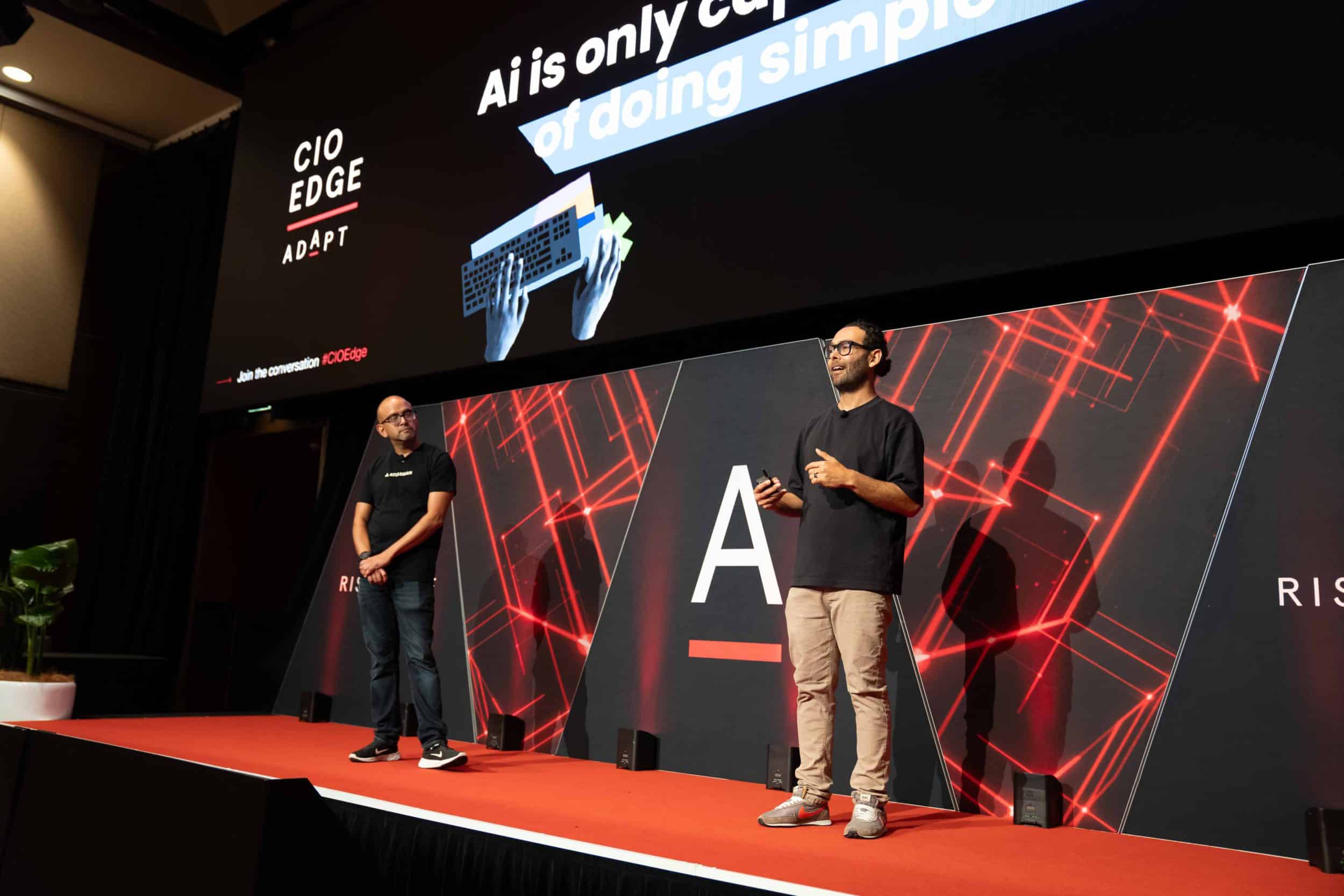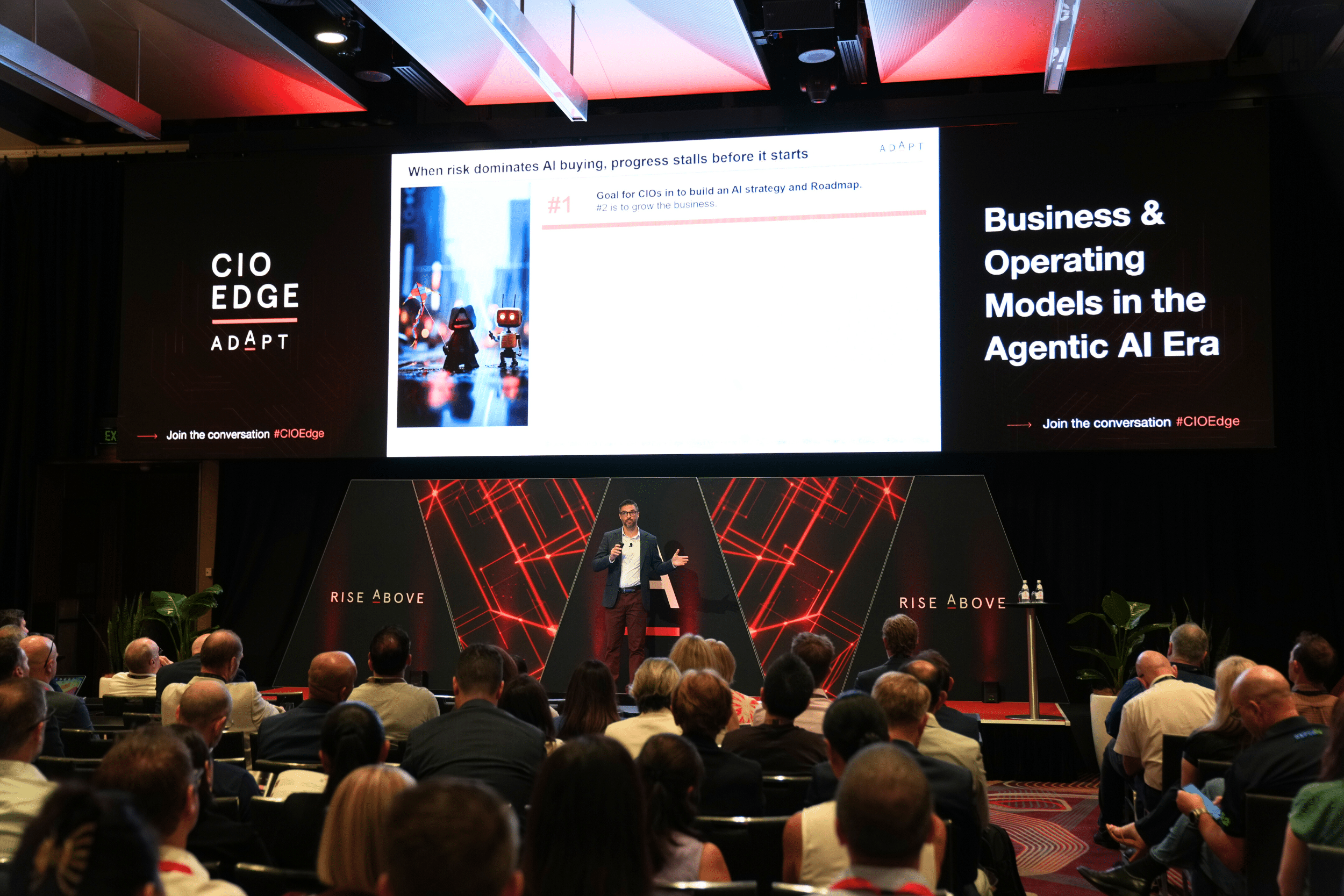Former NSW digital minister, Victor Dominello, says that in an age where information is power, individuals need to have control over their personal data, not governments.
Since quitting state politics in March 2023, after a 12-year stint, Dominello is advocating reform in both digital identity and credentials. This reform can positively impact the more than 80% of NSW citizens using digital licences.
In May 2023, he was appointed a director of the Trustworthy Digital Society Hub, a new initiative from UNSW and UTS in Sydney to lead research and insights into citizen-centred digital platforms. He has also taken a board seat at the Tech Council of Australia.
Digital identity as an ecosystem play
Dominello spoke to ADAPT’s Head of Programs Byron Connolly about how a fit-for-purpose digital ID will empower individuals with greater control. This will allow them to manage what information they share and for how long to enhance privacy.
As reported in July 2023, a new national digital identity verification service is expected to be in place by 2024. Dominello says that–until then–the Tech Council will make submissions on the draft bill. His hope is that the Bill will be passed into Law by mid-2023, with trust and identity products hitting the market afterwards.
It’s got to be an ecosystem play; it’s not just government issuing a credential,” he says.
The ecosystem is where the ‘real magic occurs,’ where identities and credentials are combined; the ‘who’ and the ‘what,’ he says.
For example, in the [NSW Digital ID], that is a seamless display where on one app–it doesn’t just show who you are, it shows what you can do. Whereas, if you go into MyGov, it’s an identity play. You [still] have to [sign] into various products to show that you’re entitled to Centrelink.”
That’s a clunky experience but hopefully, we can start sorting that out as a nation,” he says.
Making government fit-for-purpose in the digital age
Dominello has challenged the team at the Trustworthy Digital Society Hub to determine what our democracy looks like in the digital age. He says governments are very slow and the lag between emerging technologies hitting the market and government catching up is getting wider and wider. Dominello says this widening lag builds distrust.
Look at Uber, they came to the market and it took government about 7 years to come up with regulations that were fit for purpose. So, how do we get a faster and more efficient cadence of government operating in the real world?” he asks.
Silos are hindering Aussie innovation
Dominello has worked with C-level technology and finance leaders in NSW, in addition to people and change leaders. This engagement matters as ADAPT’s research has found that competing business priorities across these groups are the main barrier to delivering successful technology initiatives. These problems are more pronounced in government, as Australian States often appear to work in silos when it comes to initiatives such as the digital licence.
Dominello says these silos make innovation harder.
Think about magic. [Harry] Houdini does a magic act, and you see something that you don’t expect. So, when government delivers a service that is on the horizontal, it’s magic because people don’t expect government to provide joined-up services.”
I remember saying to my team, ‘we can stick in our swim lane, and we can deliver products out of the Department of Customer Service.’ We were delivering some pretty impressive stuff [compared to] the global [landscape]. But they were incremental changes. The magic really happened when we were joining up with health, education, or other agencies. People don’t expect that.”
Avoiding another automation policy debacle
ADAPT finds that corporate organisations and governments have stepped up their use of AI and automation technologies to streamline processes and create efficiencies at a time of global economic uncertainty.
Yet, many are getting automation wrong with the federal government’s Robodebt failure being a prime example of what happens when automation is rolled out unchecked without the level of human oversight that is required. Moreover, ADAPT finds the value of automation is often less than envisaged, because organisations often take a siloed, task-based approach.
The Australian government will soon respond to the Royal Commission’s recommendations, which provides a good framework moving forward, says Dominello.
Thank god Mr [Bill] Shorten got out there ahead of it and used that as an example of what not to do moving forward because there could be far worse consequences if we don’t keep it in check.”
Having that framework in place based on the recommendations … I think is very good for our country moving forward. If it wasn’t for the Robodebt Royal Commission, a lot of us would [still] be complacent about it all,” he says.
For a practical guide to navigate AI risks, read ADAPT’s Handbook for Avoiding the AI Apocalypse. And an ADAPT Market Trends report offers three actions to make automation more effective.






























